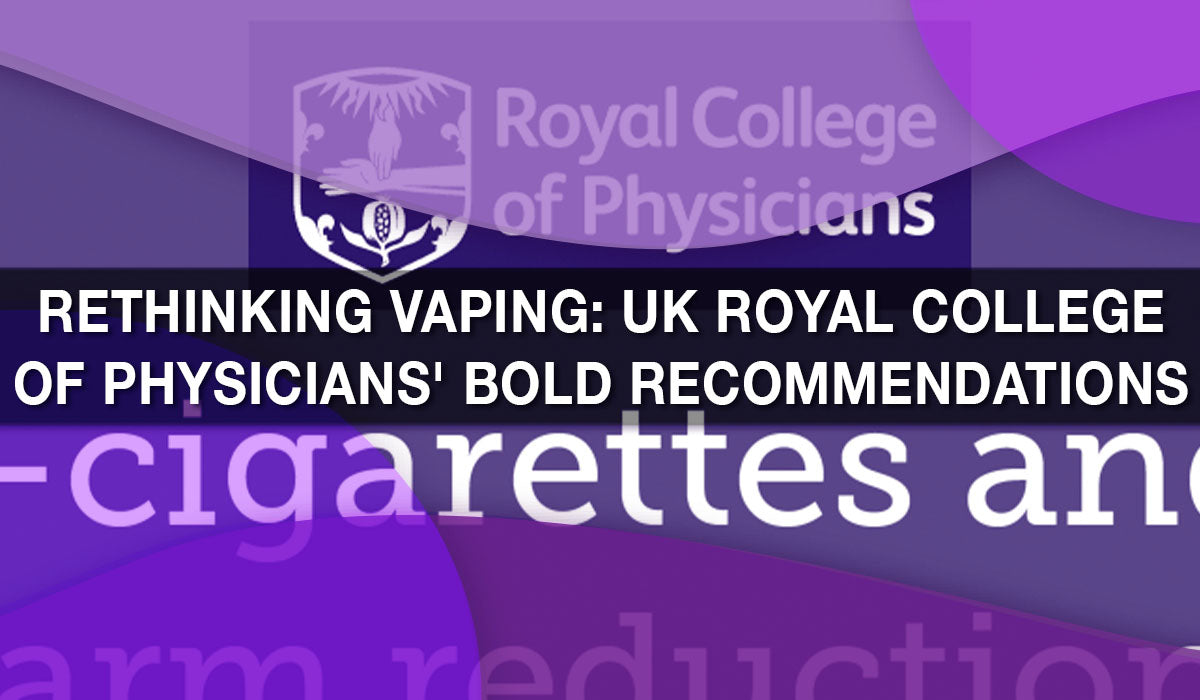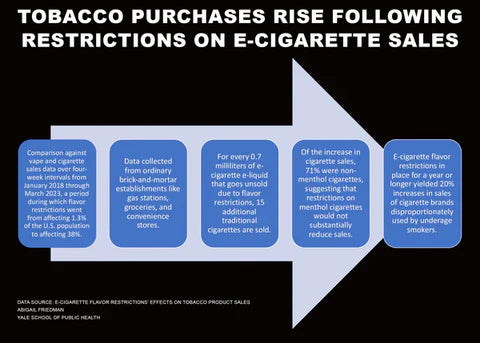
Rethinking Vaping: UK Royal College of Physicians' Bold Recommendations
In a landscape where opinions on vaping fluctuate as frequently as the tides, the latest comprehensive report from the UK Royal College of Physicians (RCP) injects a much-needed dose of clarity. Embracing an evidence-based approach, the RCP recommends a paradigm shift in how we perceive vaping: from a demonized habit to a potent tool in the fight against smoking.
Vaping to Quit Smoking?
The National Health System of the UK has embraced a paradigm that is entirely alien to US vapers. They have long hosted the following website: Using Vaping to Quit Smoking.
At the heart of the RCP's recommendations lies the same simple yet profound assertion: vaping nicotine should be championed as a viable means to quit smoking. In a move that challenges conventional wisdom, the report underscores the effectiveness of e-cigarettes with nicotine, positing them as more efficacious than traditional nicotine replacement therapy in sustaining smoking cessation for six months or longer.

Success of UK Policies
The numbers speak volumes. Since 2013, the use of e-cigarettes in quit attempts has facilitated the successful cessation of smoking for an estimated 30,000 to 50,000 individuals annually in England alone. These figures paint a compelling picture of vaping's potential to mitigate the staggering toll of tobacco-related morbidity and premature mortality.
Toxic Vapor Myth Debunked
Crucially, the RCP dispels the specter of vaping-related health risks, affirming that vaping exposes users to a markedly narrower spectrum of toxins compared to combustible tobacco products. With levels of toxins absorbed from vaping remaining consistently low, the report contends that the risks associated with vaping constitute only a fraction of those inherent in smoking.
Moreover, the safety profile of vaping nicotine emerges unscathed from scrutiny. Contrary to alarmist narratives, the report asserts that vaping nicotine is not correlated with a high incidence of adverse health effects. Instead, it attributes the lion's share of smoking-related harm to the byproducts of combustion rather than nicotine itself.
Flavors For Adult Vapers
In a bold departure from conventional wisdom, the RCP advocates for the proliferation of flavored e-cigarettes to bolster smoking cessation efforts. Far from being a gateway to nicotine addiction for nonsmokers, flavors are touted as a potent catalyst for adult smokers looking to transition away from combustible tobacco products. Restricting flavors, the report contends, risks inadvertently perpetuating smoking habits rather than curbing them.
This has sadly played out in reverse in the US, where the FDA’s own research has shown that flavor bans increase cigarette sales.

Public Misconceptions on Vaping
However, despite the wealth of evidence underpinning the efficacy and safety of vaping, misconceptions persist among healthcare professionals. A notable proportion remains hesitant to endorse vaping, citing concerns about addiction and uncertainties regarding long-term health impacts. Addressing this knowledge gap, the RCP underscores the imperative for healthcare professionals to receive specialized training in smoking cessation strategies incorporating e-cigarettes.
In the realm of regulation, the RCP advocates for a nuanced approach that balances the imperative to curb youth vaping with the imperative to safeguard access for adult smokers. This stands in stark contrast to Australia's prohibitive stance, characterized by onerous barriers that impede adult smokers' access to potentially life-saving alternatives.
Humane Regulations
In summary, the RCP's latest report represents a watershed moment in the discourse surrounding vaping. By championing evidence-based policies grounded in scientific rigor, the
RCP offers a beacon of hope for smokers grappling with addiction. It's time for policymakers, healthcare professionals, and society at large to heed this clarion call and embrace vaping as a potent weapon in our arsenal against the scourge of smoking. Read the full report here.









Leave a comment
This site is protected by hCaptcha and the hCaptcha Privacy Policy and Terms of Service apply.